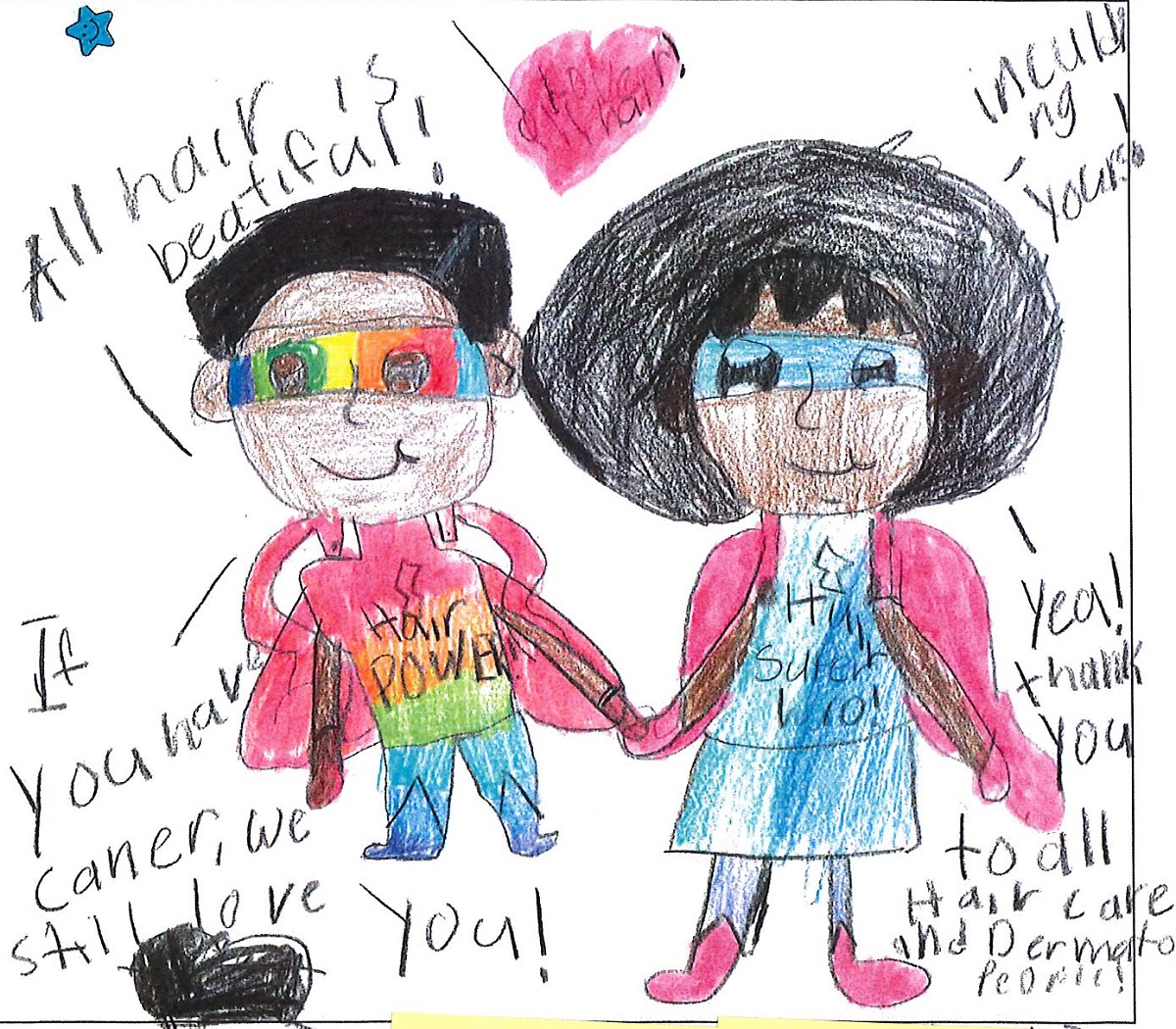Penn State Health Dermatology Department wants to educate girls about damaging hairstyles

When she was growing up, Dr. Claire Hollins saw women around her who wore hairstyles so tight it caused them pain.
Those hairstyles never appealed to her, she said, because of the discomfort she witnessed.
Today, Hollins, an assistant professor of Penn State College of Medicine’s Department of Dermatology, regularly sees the long-term impact of those tight hairstyles. Women come to her for help with traction alopecia, or hair loss caused by repeated pulling on the hair, especially in conjunction with hair chemicals or heat.
“Women are devastated their hairlines are moving so far back,” said Hollins, adding that some older women decide to wear hats or wigs to hide their issue.
Because the condition is completely avoidable if women loosen their hairstyles, Hollins and Dr. Charlene Lam, a College of Medicine assistant professor of dermatology and vice chair of community health for dermatology, are on a mission to educate young girls that hairdos causing itchy scalps and pain are not normal.
“We want to change behavior, and we know the way to do that is by early education,” said Lam.
Lam and Hollins are promoting the idea that girls should wear their hair in a natural style through a community health campaign started in March with the Milton Hershey School called “Healthy Hair Made with Care,” a slogan termed by Dr. Michael Ioffreda, a College of Medicine professor of dermatology and vice chair of community health for dermatology. They hope to take the program to other schools and preach that all hair is beautiful.
Led by Drs. Lam and Ioffreda, Dr. Hollins along with Drs. Jordan Lim, Kate Hallock, and Dominque Durante from the Dermatology Department created several educational videos on hair and scalp conditions. Penn State Health’s vice president and chief diversity officer, Lynette Chappell-Williams, is featured in one of the videos reading the children’s book “Hair Love” by Matthew A. Cherry which is about loving one’s self and hair.
At the Milton Hershey School, students from kindergarten through 12th grade were asked to watch the videos and then create posters representing the “Hair Care Warriors.” Older students also were challenged to come up with a hashtag. One of the winners was #CurleyAndCaredFor.
Hollins and Lam said that not many dermatology practices focus on hair and skin issues faced by people of color. Along with hair loss, the doctors also are educating men about razor bumps. Nearly 60% of Black men and others with curly hair have a problem with hair growing back into the skin, causing inflammation.
Lam and Hollins said one of their ideas for continuing to spread the word about Black skin care issues is to expand their outreach to hairstylists.
“They can be part of the solution to this problem,” said Lam. “Hair is deeply personal, so we know this isn’t an easy issue to change.”
If you're having trouble accessing this content, or would like it in another format, please email Penn State Health Marketing & Communications.
